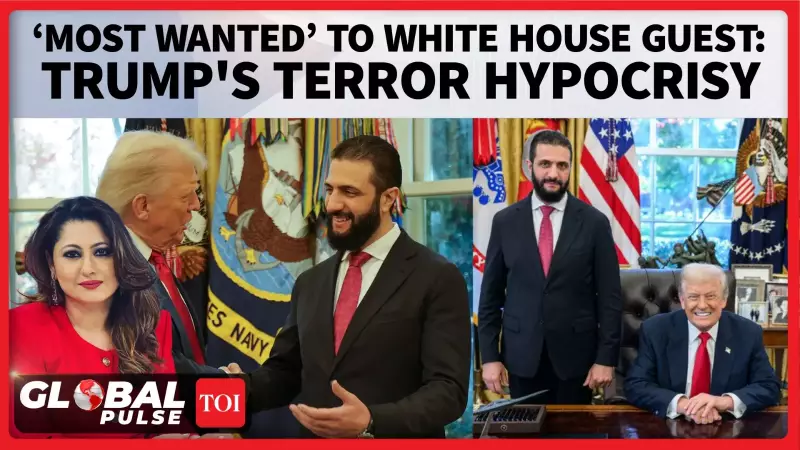
In a dramatic shift that has stunned international observers, US President Donald Trump rolled out the red carpet for Syrian President Ahmed Al Sharaa at the White House, a man who was once designated as one of America's most wanted terrorists with a $10 million bounty on his head.
From Terrorist to Head of State
The meeting between the two leaders on November 11, 2025, marked an extraordinary turnaround in US-Syria relations. Ahmed Al Sharaa, who once belonged to the terrorist organization Al Qaeda responsible for the devastating September 11 attacks that claimed nearly 3,000 American lives, now leads Syria after overthrowing former president Bashar Assad.
Social media platforms were flooded with photographs of the historic meeting, showing Trump and Al Sharaa engaging in what appeared to be cordial discussions at the White House. The images sparked immediate controversy and debate across political circles worldwide.
Trump's Controversial Endorsement
President Trump defended his decision to host the Syrian leader, describing Al Sharaa as a "strong leader" who had a "rough past." This characterization of a former Al Qaeda operative has drawn sharp criticism from multiple quarters, with many questioning the moral compass of American foreign policy.
The transformation of Al Sharaa's status is nothing short of remarkable. From being a hunted terrorist with a multi-million dollar price on his head to becoming the recognized leader of a nation and receiving presidential hospitality at the White House represents one of the most dramatic political rehabilitations in recent memory.
International Backlash and Moral Questions
Critics have lambasted the Trump administration for what they perceive as abandoning moral principles for strategic convenience. The welcoming of a former Al Qaeda member, whose organization was responsible for the deadliest terrorist attack on American soil, has raised serious questions about the consistency of US counter-terrorism policies.
The meeting comes amid ongoing global tensions and represents a significant departure from traditional US foreign policy approaches toward individuals with established terrorist backgrounds. Political analysts suggest this move could have far-reaching implications for international diplomacy and America's standing in the global war against terrorism.
As images of the cordial meeting continue to circulate online, the world watches to see how this unexpected alliance will impact Middle Eastern politics and global security dynamics in the coming months.





